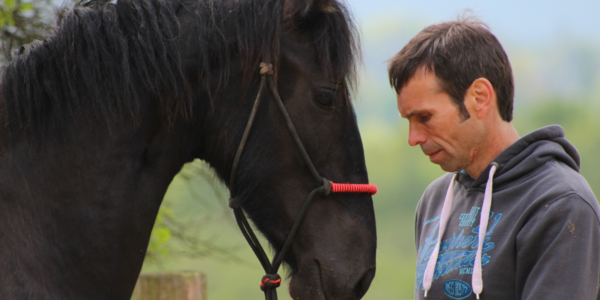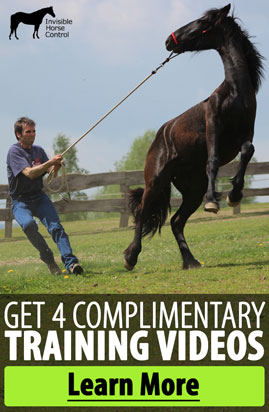Horses might not understand you when you are talking, but in a lot of cases, they notice more things about you than a human would.
I believe that a horse can tell almost everything about how you feel.
He can tell when you get scared. Often he can use the moment when you get scared to try to gain dominance over you.
Your horse can also tell when you are dedicated to making him listen. He can feel whether you are going to persevere until he does what you are asking. He can also tell if you are likely to give up and just let him misbehave.
He can tell when you don’t have enough time, and he might try to use it to his advantage and try to not do something.
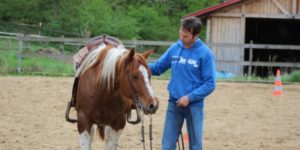 Your horse can tell that you love him even without you hugging him at every opportunity or giving him treats. He feels good when you like him and doesn’t feel so good when you are angry.
Your horse can tell that you love him even without you hugging him at every opportunity or giving him treats. He feels good when you like him and doesn’t feel so good when you are angry.
There is a limit to what your horse can tell about your feelings
It doesn’t matter if you get mad at your horse or if you are mad at someone else. Your horse is likely to behave worse when you get stressed. He can tell that you are stressed but he cannot really tell what you are stressed about.
Your horse can tell pretty much every feeling going on in your head.
He cannot understand your knowledge, but he can understand your feelings and emotions.
The way your horse “reads” you
It is not that he could read your mind, it is just that all your emotions show in the way you act.
When you are confident you act in a certain way, when you are uncertain, nervous or un-focused you act slightly differently. It doesn’t matter what it is, your feelings alter your behavior and horses can pick that up incredibly well.
Same exact signal might have different outcomes
For example, there is a lazy horse ridden by someone who is dedicated in his mind to making sure that the horse will do what he is asking no matter how long it takes. In this case, the lazy horse is going to go straight to trot if the rider asks for it.
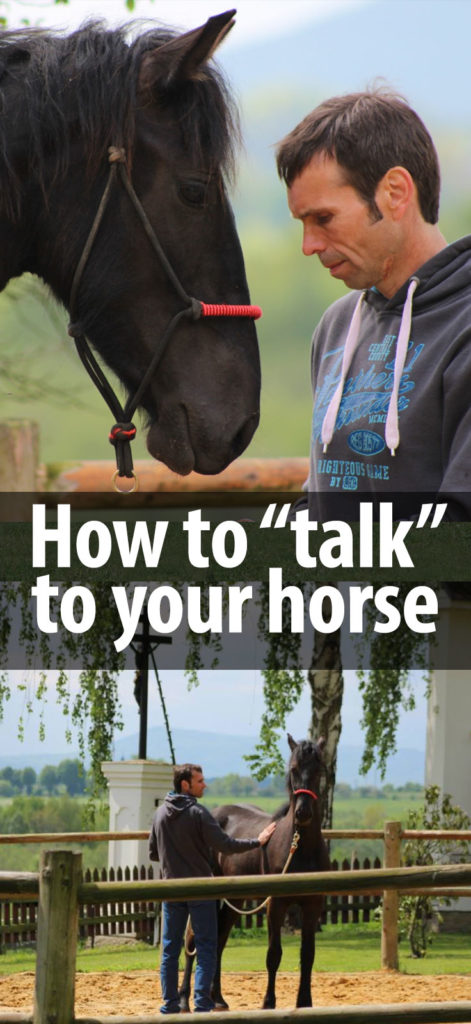
Pin this article on your Pinterest!
The horse can feel the determination of the rider and knows that trying to fight would just make him more tired.
Then, that rider gets down, and another rider mounts in the saddle.
All of a sudden the horse stops listening nearly as well, even though technically they are both giving the horse identical aids. The only problem is that this rider is not determined, he is not focusing on what he wants the horse to do or he doesn’t know what he is going to do if the horse doesn’t listen.
Even though the two riders are on the same exact horse and are giving him the same exact signals, the horse will react differently. While the determined rider could get the horse to trot easily, the non-determined rider can barely get him to walk using technically the same exact signal.
People sometimes couldn’t tell a difference between whether the rider is determined, but the horse can.
I saw this happening many times over and over again. Sometimes a beginner rider can get a horse to listen super reliably, while an experienced rider who just has his mind focused elsewhere cannot.
Focusing your mind solely on what you want your horse to do is more important than moving your leg to the precise spot someone told you the pressure has to come from.
So how do you “talk” to a horse?
You cannot fool a horse with words.
People rely on words. When you see someone your initial feeling might be “oh that person is nervous” it is likely true but as you start talking, the person denies it and you believe what they are saying instead.
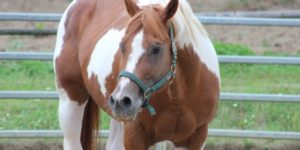 Your horse doesn’t understand your words and he is a master at understanding how you feel, so there is no fooling him.
Your horse doesn’t understand your words and he is a master at understanding how you feel, so there is no fooling him.
The way to tell your horse “We are only going back home after you do what I am asking” is by simply making sure you have time and really dedicating yourself to doing that before you even start riding.
Or if you want to tell your horse “You don’t have to be scared” you can do it by remaining calm yourself and not getting stressed.
Your horse can tell when you get stressed, but he cannot tell whether you are stressed because he got stressed, or whether you are stressed because there might be something dangerous on the trail.
There is no fooling your horse
You cannot “trick” your horse, there is no way to tell him “You have to listen otherwise we are not going home” if you have to be somewhere in half an hour and you know it isn’t true.
There is a huge difference between being calm and dedicated and between pretending that you are calm and dedicated.
Keep the wrong thoughts in your head and your horse will listen worse, keep the right thoughts in your head and your horse will listen better.
If you want to learn more about horse training take a look at my free video series by clicking here >
